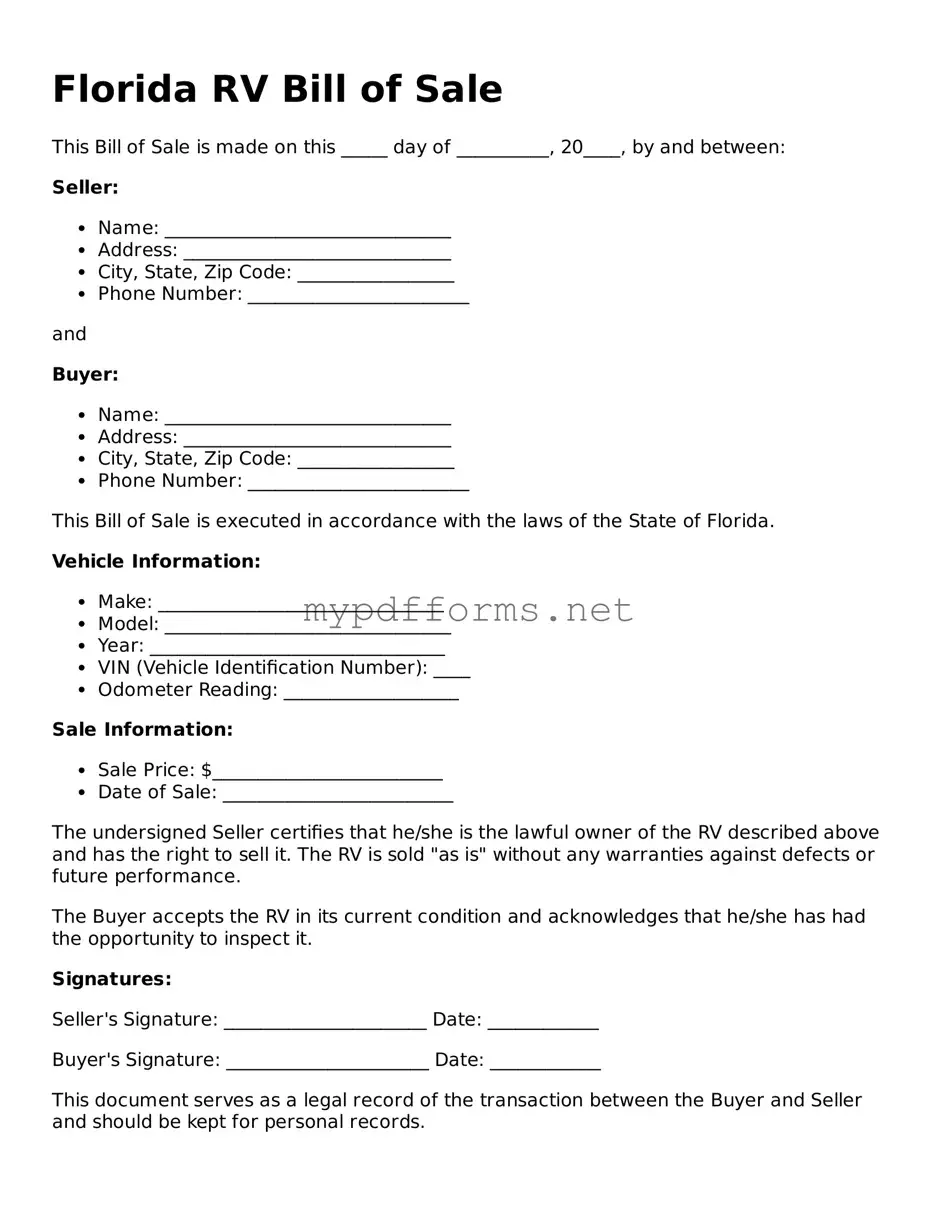The Florida RV Bill of Sale form shares similarities with the standard Vehicle Bill of Sale. Both documents serve as proof of transfer of ownership for motor vehicles, including RVs. They typically include essential information such as the buyer's and seller's names, addresses, and signatures, along with details about the vehicle, like make, model, and VIN. This documentation is crucial for registering the vehicle with the state and can protect both parties in case of disputes regarding ownership or condition at the time of sale.
Another document closely related to the RV Bill of Sale is the Boat Bill of Sale. Like the RV Bill of Sale, this form is used to document the sale and transfer of ownership of a boat. It includes similar information, such as the names of the buyer and seller, the boat's specifications, and the sale price. Both documents provide legal protection and clarity, ensuring that the transaction is recognized by the state and can be used for registration purposes.
The Motorcycle Bill of Sale also bears resemblance to the RV Bill of Sale. This form is utilized when a motorcycle changes hands, detailing the transaction in a manner that is legally binding. It includes the same key components: buyer and seller information, vehicle details, and the sale price. This document is essential for both parties to establish ownership and is often required for registration and titling with the state.
A similar document is the Trailer Bill of Sale. This form is used when a trailer is sold, capturing the essential details of the transaction. Much like the RV Bill of Sale, it includes the names and addresses of both parties, a description of the trailer, and the sale price. This document ensures that the transfer of ownership is clear and legally recognized, which is important for future registration and potential resale.
The Commercial Vehicle Bill of Sale is another document that aligns with the RV Bill of Sale. This form is specifically designed for the sale of commercial vehicles, which may include larger RVs used for business purposes. It contains similar elements, such as the buyer and seller's information, vehicle specifics, and the agreed-upon price. This document serves to formalize the sale and is often necessary for tax purposes and registration with state authorities.
In a similar vein, the North Carolina Motor Vehicle Bill of Sale is vital for documenting the sale of motor vehicles, ensuring both buyers and sellers have a clear agreement on the terms of the transaction. This form captures key information such as the buyer's and seller's details, vehicle specifications, and the sale price, making it essential for proper vehicle registration and title transfer. For those looking to familiarize themselves with the process, a blank form is here to assist in accurately completing the necessary documentation.
Lastly, the Generic Bill of Sale can be compared to the RV Bill of Sale. While it is not specific to any type of vehicle, it serves a similar purpose in documenting the sale of personal property. This document includes the names of the buyer and seller, a description of the item being sold, and the sale price. It provides a legal record of the transaction, ensuring that both parties have a clear understanding of the sale and its terms.

